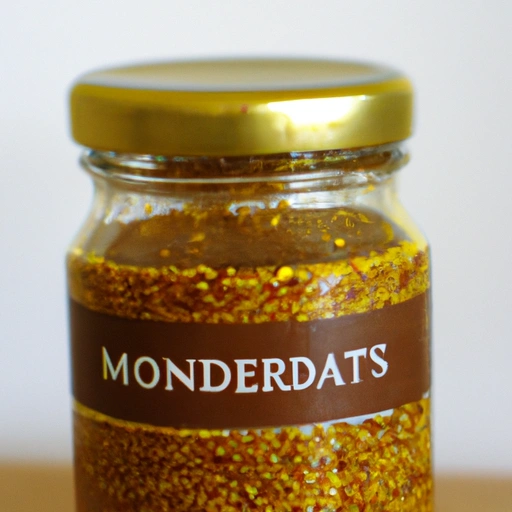Mustard
Description

Mustard is a condiment made from the seeds of a mustard plant. The seeds are mixed with water, vinegar, lemon juice, wine, or other liquids, salt, and often other flavorings and spices, to create a paste or sauce ranging in color from bright yellow to dark brown. It is commonly used in both Eastern and Western cuisines, serving as a versatile ingredient that adds a piquant flavor to a variety of dishes. Mustard is available in many forms, including seeds, powder (dry mustard), and prepared mustard, the latter being the most popular form used in recipes.
Common uses
Mustard is commonly used as a spread on sandwiches, a dip for snacks, a glaze for meats, and a binding agent in emulsifications such as mayonnaise and vinaigrettes. It's also an essential ingredient in many sauces, marinades, dressings, and condiments, adding a distinct flavor and heat that complements a wide range of dishes.
Nutritional value
Calories
One tablespoon (about 15 grams) of yellow mustard typically contains about 9 calories.
Protein
Mustard is not a significant source of protein, with only about 0.5 grams per tablespoon.
Fat
Prepared mustard is low in fat, with less than 0.5 grams per tablespoon.
Carbohydrates
There are about 1 gram of carbohydrates in one tablespoon of mustard.
Vitamins
Mustard seeds are a good source of the B-complex vitamins, such as folates, niacin, thiamine, riboflavin, and vitamin B6.
Minerals
Mustard contains trace amounts of minerals like potassium, magnesium, calcium, and phosphorus.
Health benefits
Mustard seeds are rich in antioxidants and phytonutrients. They may have anti-inflammatory properties and can help in managing symptoms of arthritis. Mustard is also known to stimulate digestion by increasing saliva production.
Potential risks
Consuming mustard may pose a risk of allergic reactions in some individuals. It also contains oxalates, which when consumed in large amounts can crystallize and cause health issues for people with kidney or gallbladder problems.
Common recipes
Mustard is used in various recipes including deviled eggs, potato salad, BBQ sauces, and dressings. It's also a key ingredient in many Indian, Chinese, and Japanese dishes, where mustard seeds are used as a spice.
Cooking methods
Mustard can be used raw as a condiment or incorporated into cooked dishes. Its flavor is enhanced when heated, making it a popular addition to sauces and glazes. Mustard seeds can be toasted to release their aromatic oils.
Pairing with other ingredients
Mustard pairs well with meats like pork, beef, and chicken. It also complements cheeses and can be used to elevate the flavor of vegetables or legumes.
Summary
Mustard is a flavorful ingredient with a long history and various culinary uses. With its range of flavors and heat levels, it serves as a condiment, spice, and key component in numerous dishes. Its nutritional content offers several health benefits, but it should be consumed in moderation to avoid potential risks, particularly for those with allergies or specific health conditions.